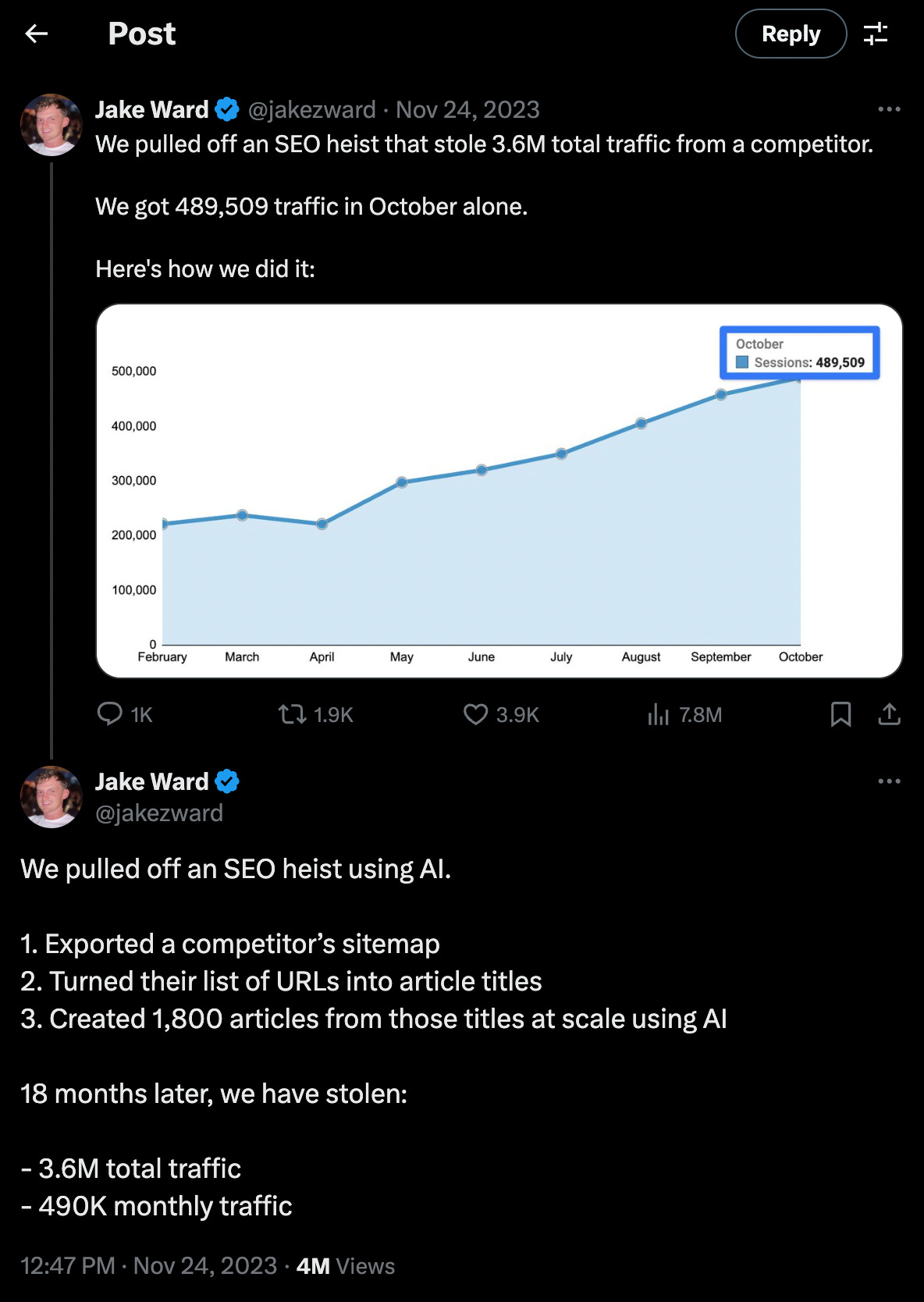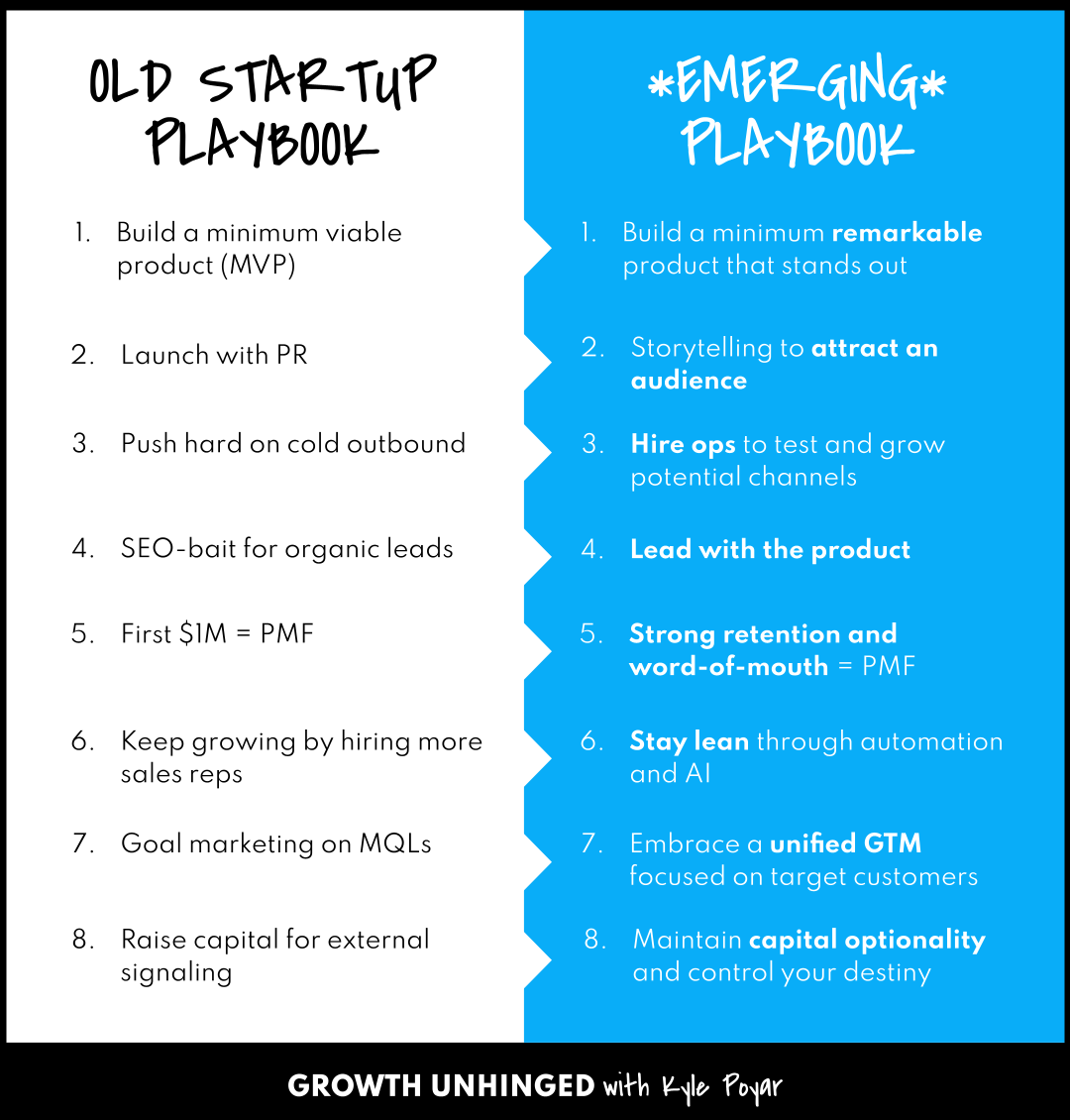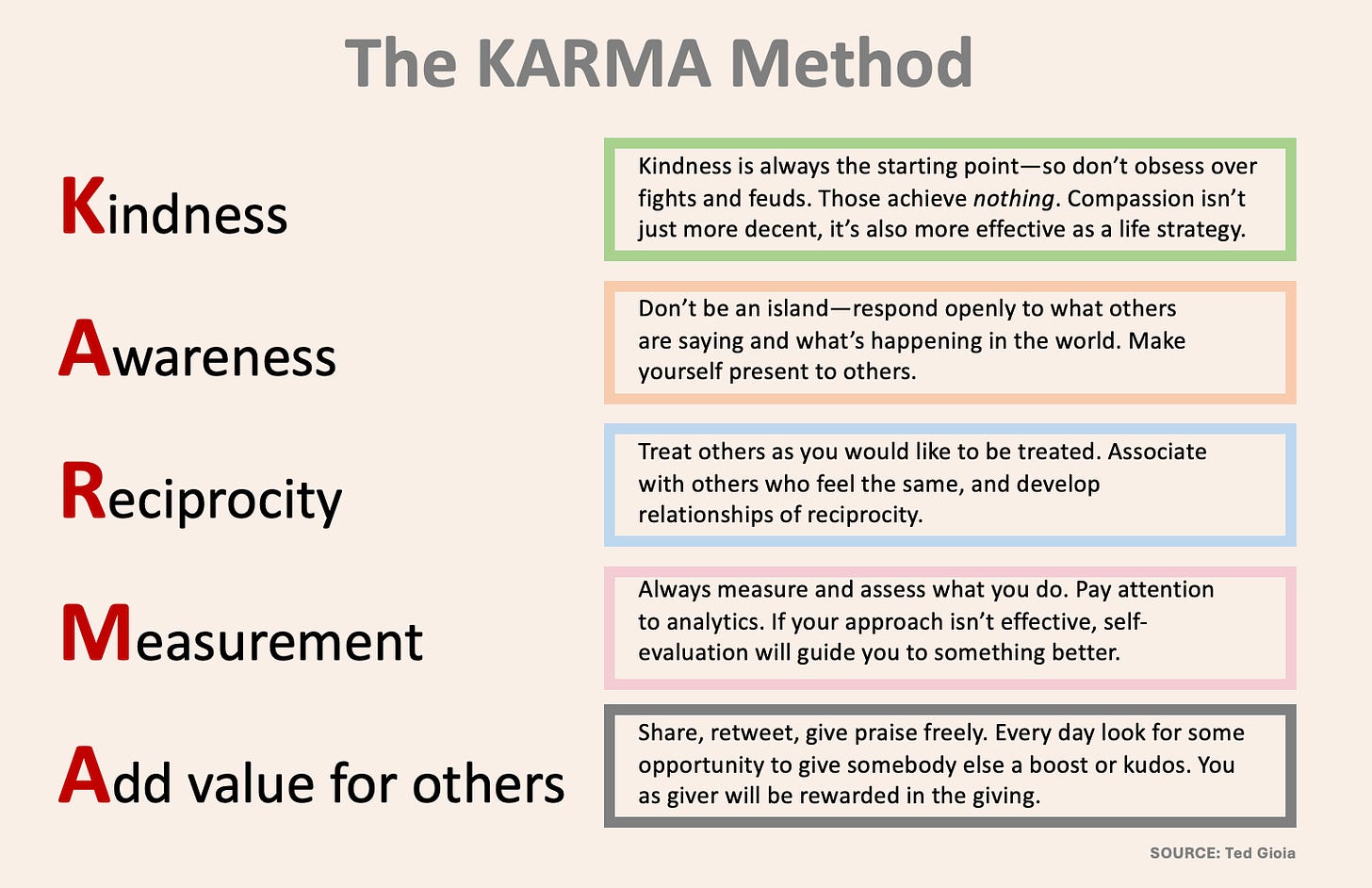And I probably do sometimes too, don't get me wrong and don't take this personal. But I think it's time we admit that Gen AI written content is very noticeable and that we have to learn where and how is ok to use it. Otherwise the internet is going to become uninhabitable.
Take LinkedIn for example: it's been years I don't find any valuable content in there. It's always the same update about products I don't care about, the same self-congratulatory post on awards that seem irrelevant, and now, on The Rise of Sameness: LinkedIn’s Never-Ending Loop of Identical Articles.
Now, take Google and SEO in particular. First it was the “write about these keywords on your titles to rank higher”, then “build a how-to-guide with a million headers and links”, and today we are on the “write as many how-to-guides as possible with all these keywords but use AI to make sure you’re faster than our competitors”. The result? Empy and soulless, yet super technically optimized content as the number one answer to your search query.

Call me Shanti-Shanti, but I believe there are some universal rules that govern life. And one of those rules is that intention matters. Writing for an algorithm with the only purpose of growing instead of adding value to humans, is for me, the digital equivalent to “over-extraction” — taking from the ecosystem without giving anything back. And if I have to bet, I would say, that strategy — in the long run — will crash.
Guys, I am sorry to tell you — the way we are using AI to produce content is not growth hacking, is POLLUTING THE INTERNET.
“It’s not you, it’s me”
Don’t blame ChatGPT, that’s the easy one. The problem was there even before the technology existed. We were already producing content for the algorithms ruling the Internet and the clickbait. Your CV and Cover Letter follows the same structure as everyone elses since 2010, it’s nothing new. Most businesses identities have been taken from Pinterest boards for years now. Startup pitches were copying popular templates before OpenAI’s launch. Job descriptions had all the same words in them: “dynamic”, “fast-paced environment”, “self-starter”…, you get me, right? The problem is systemic — AI just accelerated what we were already doing.
Thank God there’s Substack
As ChatGPT would say: In the middle of this overwhelming tide of AI-generated, soulless content…, I found a place where authenticity reigns.
Lately, when I need to find new ideas I always come to Substack. A place that reminds me of old Tumblr days, the one social network on the internet where (even if as an illusion), I feel like what I am reading is real people and honest stories.
And while it remains authentic, I have decided I am going to start writing about de-marketing (as in: de-growth). I want to explore what happens when we prioritize depth over volume, quality over quantity. And I want to challenge my own ideas about what marketing is.
Some references and inspiration
Because ideas are not “ours”. They are more like a remix of other people’s conclusions, beliefs and references. This article has been for sure been inspired by some of these articles and things:
1 - This note I published a few days ago that went viral was the starting point for this article.
The replies are great. My favorite:
2 - Erik Hoel’s article on how AI generated content is murdering the internet. It includes some great references (and that’s where I found about that tweet I mention here for example).
3 - This podcast episode with John Fullerton (an amazing regenerative economist) can serve as a great intro for degrowth, in case you are new to that concept.
4 - The emerging startup playbook by Kyle Poyar: a strategy that feels more realistic than the content I typically get bombarded with on Linkedin.

5 - Intro to Zettelkasten with Obsisdian. This is something I have been wanting to do for a while but I still haven’t started. Yet, I have watched all possible videos out there on how to do it. This is a good one.
6 - Ted Gioia’s tips to a successful social media strategy: the KARMA method.








